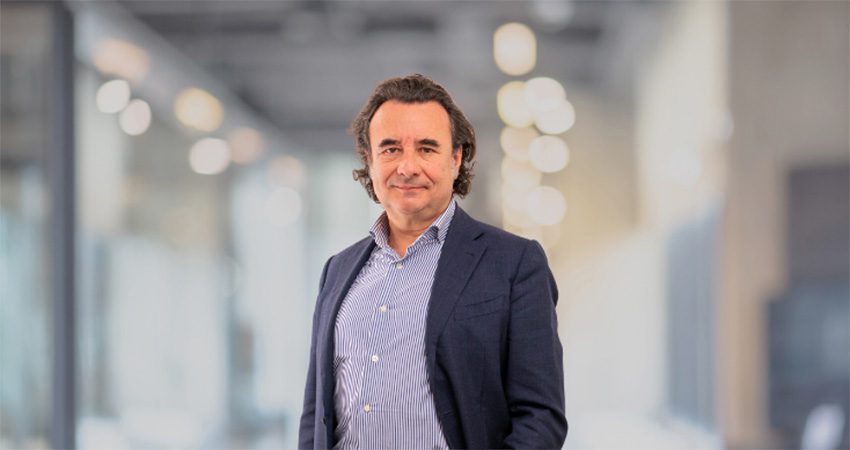As part of the annual conference organized by the Agency for the Promotion of European Research (APRE), META Group delivered a workshop on “Is there impact without use? The challenge of knowing how to innovate in complexity“, one of the most pressing questions regarding research and innovation.
For years, Europe has been dedicating huge resources to scientific and technological research with the aim of supporting innovation and improving the lives of its citizens. Nonetheless, the results produced by research often do not translate into concrete benefits for the economy and society. To improve the return on these investments, with Horizon 2020 and even more with Horizon Europe, the focus shifted to ensuring that scientific excellence generates a tangible and recognizable change in a target group, a concrete impact. This shift requires a new paradigm, an approach that goes beyond the “European project” dimension and leads to the effective use of research results. The workshop by META Group based on 30 years of experience in valorising the results of European projects, attracted a lot of interest among the participants of the 2022 APRE Conference.
At the end of the meeting, Andrea Di Anselmo, President of META Group, gave an interview for the APRE Magazine that you can read below.
In your experience, what is the data that emerges from reading Evaluation Summary Reports (ESR), in particular considering EIC‘s Transition and Accelerator schemes?
There is a clear challenge for research teams to consider impact as a decisive element of the project and not an accessory aspect, secondary to the excellence of scientific advancement. Compared to tools such as the European Innovation Council’s Transition and Accelerator and also the European Research Council’s Proof of Concept projects, this is more and more evident. There is little confidence, and perhaps even little interest, in looking beyond research funding and focusing on what needs to be done so that excellent results are used, reach more adoption, and generate impact. These are tools that do not finance the development of new knowledge but activities to bring findings and new knowledge to the market or to transfer them to third parties.
Should the importance of impact in project evaluation also be reflected in the budget allocation between various activities?
The Anglo-Saxons saying “put your money where your mouth is” seems to me the the correct way to proceed. If an activity is considered important, this should be reflected in the allocation of resources.
We were talking about the EIC Transition: it is evident that by emphasizing the transition from research to market, the balance of activities, and consequently, of the budget, must address the “business / use oriented” objective. The same happens in collaborative projects and other types of funding schemes. The importance of this dimension is evident if we consider the weight that the impact section has in the evaluation phase of Horizon Europe and the attention dedicated to this topic in the proposal template. Furthermore, think about the formalization of concepts such as “outcome,” which denote a “factual” interest in impact. In this context, researchers should keep in mind that Horizon projects are required not only to develop new knowledge but to enable benefits for European citizens.
In your presentation, you insisted a lot on performance indicators and use. Is there an impact without using research results?
There are many discussions about “how to measure impact,” but very little attention to having results used as a first step towards generating impact.
At META Group, we say that “there is no impact without use” and that it is difficult to measure something that does not exist. Our focus is to help clarify how key exploitable results will be used by a specific target group. It is the use, in the long term, that enables impact. Having said that, the performance indicators in Horizon Europe are much simpler to select and make credible, thanks to the introduction of the concept of “outcome,” which concretely crystallizes the moment adopters start using a Key Exploitable Result, before or after the end of the project. Therefore, this immediacy allows us to define verifiable and effective indicators for the outcomes and to project them on the impact that will be enabled in the long run.
Of course, we are very interested in connecting with those who have made an impact with a result kept closed in their drawer.
Dissemination, exploitation, impact, are three different actions, are there still unclear points and room for improvement when dealing with them?
We come into contact with many projects. There is rarely a complete understanding from all partners of what needs to be activated to mobilize impact. Exploitation, Dissemination, and Communication are three different actions, each with a different set of activities to perform and with different target groups. We see many cases in which we talk about dissemination starting from the first months of the project’s life. From our point of view, it is strange that a specific target group can be informed about the opportunity offered by using a result, when this result does not yet exist and is not well defined or, better said, “characterized.”
The good news is that the European Commission is perfectly aware of these challenges and it is for this reason that it has created a program providing free services for all projects funded in Horizon Europe, H2020 and FP7. The program is called Horizon Results Booster and supports the implementation of Exploitation, Dissemination, and Communication activities to maximize impact and generate benefits for European citizens.
The Horizon Results Booster free services can be requested at www.horizonresultsbooster.eu. We suggest that all funded partnerships apply to benefit from the methodologies and tools provided by the team of experts that deliver these support services.
Especially in the academic environment and in research centers, there are excellent groups with well-trained and competent colleagues in the technology transfer and third mission offices, ingredients that give us the opportunity and the possibility to do better.
Interview originally published in the APRE Magazine

